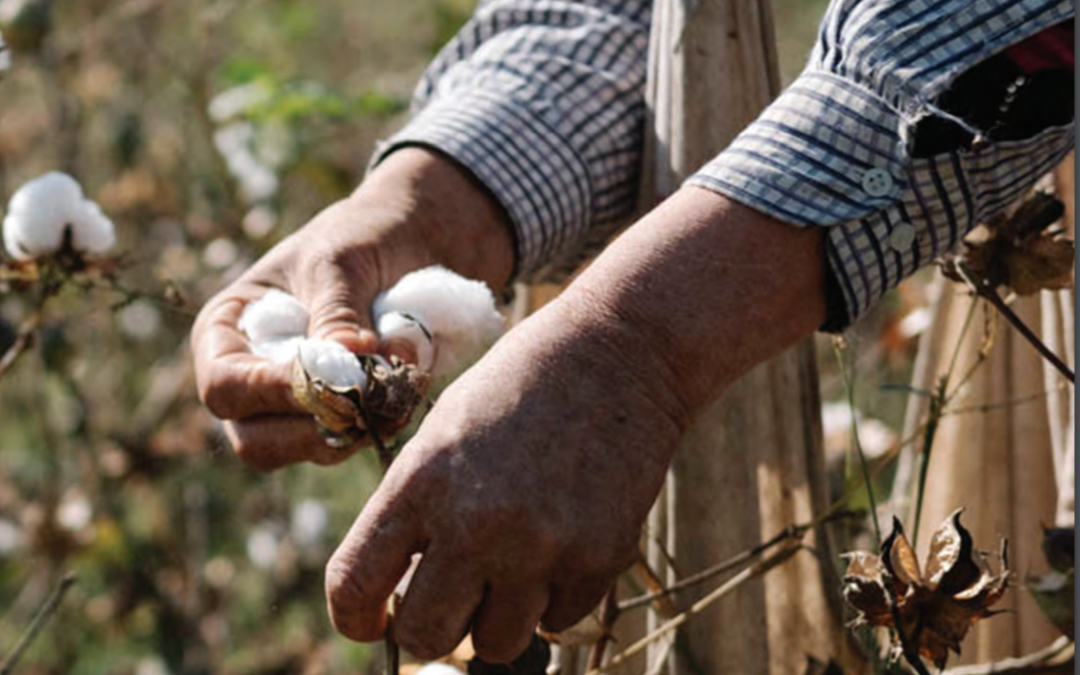A new report on Uzbekistan’s 2019 cotton harvest by Uzbek Forum for Human Rights documents progress toward ending—but not eradication—of state-sponsored forced labor, says the Cotton Campaign.
The report, “Tashkent’s Reforms Have Not Yet Reached Us,” finds that a state-imposed cotton quota, labor shortages, lack of fair and independent recruitment channels, and weak accountability systems contribute to the continuation of forced labor in Uzbekistan’s cotton fields—and that broader reform efforts in the country are being limited by slow progress on civil society freedoms.
The report’s findings are based on more than 100 in-depth and hundreds of short interviews with people involved in the cotton harvest, as well as field visits, farm monitoring in six regions, and data and analysis from a nationwide online survey conducted in partnership with the Solidarity Center and public polling/research firm RIWI Corp.
Employees of state and privately owned enterprises in interviews consistently reported being unable to refuse orders to pick cotton by government officials or employers for fear of dismissal or other job-related consequences. About half of online survey respondents said they could not refuse when asked to go to the fields or pay for a replacement picker. This testimony underscores the pressing need to establish effective recruitment systems free from interference or coercion by the government or the authorities, says the Uzbek Forum for Human Rights.
The report also documents that reform of civil society freedoms has lagged far behind the pace of reforms in other key areas, inhibiting the freedom of citizens to form civic associations such as nongovernmental organizations (NGOs) and independent trade unions empowered to fight forced labor in Uzbekistan. The report notes with concern the small number of independent, self-initiated NGOs registered in the country and the high number of rejections for registration.
“Independent NGOs, unions and civic activists have a central role to play in the reform process in promoting transparency and accountability,” says Solidarity Center’s Eastern Europe/Central Asia Director, Rudy Porter. “There is a pressing need to guarantee basic civic freedoms to empower activists to conduct independent monitoring and ensure labor practices are in line with international standards.”
The U.S. State Department’s annual Trafficking in Persons report yesterday specified that Uzbekistan will remain on its Tier 2 watchlist because the country does not yet meet the minimum standards set out in the U.S. Trafficking Victims Protection Act. The report noted that, “During 2019, the government continued to demand farmers and local officials fulfill state-assigned cotton production quotas or face penalties, which caused local officials to compel work in the annual cotton harvest.”
The Cotton Campaign, of which Solidarity Center is a member, is a global coalition of human rights, labor, responsible investor and business organizations dedicated to eradicating child and forced labor in cotton production in Uzbekistan and Turkmenistan. A Cotton Campaign roadmap for the government of Uzbekistan to dismantle the forced labor system of cotton production was presented to government officials during high-level meetings in Tashkent in May 2018.
Photo: Tashkent region, 2019. Credit: Uzbek Forum for Human Rights

